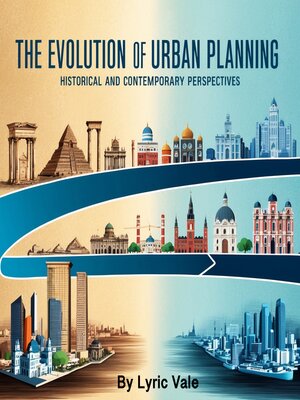The Evolution of Urban Planning
audiobook (Unabridged) ∣ Historical and Contemporary Perspectives
By Lyric Vale

Sign up to save your library
With an OverDrive account, you can save your favorite libraries for at-a-glance information about availability. Find out more about OverDrive accounts.
Find this title in Libby, the library reading app by OverDrive.



Search for a digital library with this title
Title found at these libraries:
| Library Name | Distance |
|---|---|
| Loading... |
Urban planning is the process by which cities, towns, and other urban spaces are designed, organized, and managed. It is a field that encompasses various aspects of human life, from infrastructure to social dynamics, and aims to create environments that promote the well-being of residents and the sustainability of the urban ecosystem. The importance of urban planning lies in its ability to shape the physical, social, and economic structure of a community. It influences the way people interact with their environment and with each other, determining the accessibility of resources, the flow of traffic, and the availability of green spaces, among other factors.
The evolution of urban planning can be traced back to ancient civilizations, where early cities were often designed around central hubs of commerce, religion, or governance. In these early stages, urban planning was driven by necessity, focusing primarily on basic functions like defense, water management, and trade. Over time, as cities grew and became more complex, the need for more organized and systematic approaches to urban development emerged. This shift was marked by the introduction of formal planning principles that considered not only the practical aspects of urban life but also the aesthetic, cultural, and social needs of the inhabitants.
In the modern era, urban planning became an established profession, with experts tasked with the responsibility of designing and managing urban spaces to meet the growing demands of an increasingly urbanized population. The industrial revolution, for example, brought about massive shifts in population density and the structure of cities. It prompted the creation of zoning laws, housing regulations, and other planning policies that addressed new challenges such as pollution, overcrowding, and public health. These developments laid the groundwork for the more sophisticated planning techniques used in contemporary cities.







